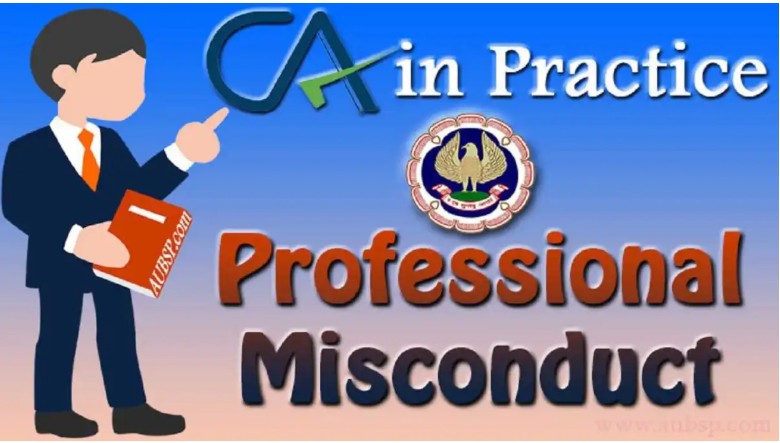Varghese Kalliath, J.@mdashA well educated young couple with two children are before us. The husband filed a petition u/s 10 of the Indian Divorce Act, for short, the Act, to snap the marriage tie by a decree of the court dissolving the marriage with his wife, the counter petitioner. Their marriage was on 21-5-1979. Parties belong to Roman Catholic Community and their marriage was solemnised at the Bishop''s House, Kottayam. After the marriage, the counter petitioner gave birth to two children. Section 10 of the Act provides that a husband may present a petition to the District Court or to the High Court praying that his marriage may be dissolved on the ground that his wife has, since the solemnization thereof, been guilty of adultery. The provision for dissolution of marriage, particularly, a dissolution at the instance of the husband, is a very stringent provision. The husband is entitled to claim divorce only if the wife is found to be guilty of adultery. Even in a case where the marriage is irretrievably broken and the parties cannot lead with peace and tranquillity a married life, for sufficient reasons, other than the ground of adultery and even if the court is satisfied that the marriage relationship cannot be resurrected by conciliation so long as the law provides that the court can grant a decree of dissolution of marriage, only if the wife is found to be guilty of adultery, the position is that the court has to fold its hands, and say that the court is helpless.
2. We are prompted to say this because with great hopes seeing that both husband and wife are very educated and two children are there who are innocent in this dispute, we called the husband and wife to appear before us and we made a very earnest and sincere attempt with the active co-operation of counsel appearing for the parties for a re-conciliation between the parties so as to salvage the marriage. The wife, who is now resisting divorce said blatantly and adamantly that she is not prepared to continue the married life and she will never live with the petitioner-husband. Though we spent some time in our anxiety to repair the impaired marriage, ultimately, we got the impression that the marriage, at any rate, has broken irretrievably and it is not possible to re-unite the snapped marriage tie. In these circumstances, we heard the matter and we want to dispose of the matter in accordance with law.
3. The wife plainly and clearly expressed an attitude that whatever be the consequences, she cannot live with the appellant accepting him as her husband. At the same time, she resists the dissolution of marriage and insists that the question of dissolution of marriage has to be decided strictly in accordance with law. We thought for a moment, what is the purpose of keeping alive a marriage where a wife cannot reconcile and accept the other party as her husband- But, we cannot decide the case on the basis of this aspect of the matter. It will be extra judicial and may go against the provisions of the Act. Judges will be confronted with rare circumstances like this. In Francome v. Mirror Group Newspapers Ltd (1984) 2, All ER 408 at 412-413, Lord Donaldson MR said: "in very rare circumstances a situation can arise in which the citizen is faced with a conflict between what is, in effect, two inconsistent laws. The first law is the law of the land. The second is a moral imperative, usually, but not always, religious in origin. An obvious example is the priests'' obligation of silence in relation to the confessional, but others can be given. In conducting the business of the courts, judges seek to avoid any such conflict, but occasionally it is unavoidable. Yielding to the moral imperative does not excuse a breach of the law of the land, but it is understandable and in some circumstances may even be praiseworthy. However, I cannot over-emphasise the rarity of the moral imperative".
4. We have to remember that as Lord Hailsham once said : "the rule of law is a confidence trick". What he meant was that the rule of law depends on public confidence and public acceptance of the system whereby Parliament makes the laws, the courts enforce them and the vast majority of citizens accept them until, they can gel them changed."
5. It came to our notice when we examined the records that there is no compliance of section 11 of the Act. Section 11 reads thus :-
Adulterer to be co-respondent - Upon any such petition presented by a husband, the petitioner shall make the alleged adulterer a co-respondent to the said petition, unless he is excused from so doing on one of the following grounds to be allowed by the Court :
(1) That the respondent is leading the life of a prostitute, and that the petitioner knows of no person with whom the adultery has been committed :
(2) that the name of alleged adulterer is unknown to the petitioner although he has made due efforts to discover it; (3) that the alleged adulterer is dead,
6. In the petition, the petitioner has stated thus:-
Further, in paragraph 9 of the petition, he has stated that even though he has asked about the parentage of the children, the counter petitioner did not disclose the same. He has also stated that he has made the necessary enquiries to find out the name of the adulterer, and his address, but he was'' unsuccessful. These things are stated in the petition as excuses for not impleading the adulterer.
7. There is a serious controversy as regards the question whether before proceeding to try a petition for divorce on the ground of adultery and if that petition does not contain the name of the adulterer, whether it is the duty of the court to dismiss the petition, if no separate application is filed to excuse the petitioner from not impleading the adulterer a co-respondent in the petition Certainly, in this case, no separate petition was filed stating reasons for not impleading the adulterer a corespondent even though the facts leading to the grounds contemplated u/s 11 (2) of the Act are narrated in the petition. On this score, the court below raised a point as point No. 1 whether the petition is maintainable, and that point has been answered against the petitioner finding that the petition is not maintainable. In considering the point, sufficient attention is not seen made to the averments in'' the petition, by the court below. We are not saying that making averments in the petition itself is sufficient and that the court has got power to excuse the petitioner for not impleading the adulterer a co-respondent in the petition and the petition can be tried. In fact, after finding that the petition is not maintainable, the court below has examined the case on merits and came to the conclusion that the petitioner has failed to establish the ground that since the solemnisation of the marriage, the wife was found to be guilty of adultery.
8. Appellant submitted that the finding on merits is absolutely perverse and unsustainable. He pointed out that the standard of proof required for dissolution of marriage on the ground of adultery u/s 10 of the Act is not the standard of proof that is required in a criminal case. The proof is less severe. If the court can reach to a reasonable probability that the wife is guilty, of adultery from the circumstance and other evidence, though not direct, according to the appellant is sufficient to establish the ground of adultery u/s 10 of the Act. He has referred us to
9. The standard of proof in matrimonial causes to prove adultery has taken a different view in English Law after Blyth v. Slyth (1966) 1 All ER 524. Earlier in Preston-Jones Case (1951) A.C. 391) it was sounded that the standard of proof in cases of matrimonial causes and particularly, in a petition for divorce on the ground of adultery, is proof beyond reasonable doubt. This dictum does not, now, hold the field. Dixon J. in (1948) 66 CLR 191, has elaborately considered the question of standard of proof and that seems to be in accordance with what we have quoted from
10. In this case, the court below found that the husband was not able to establish the ground that since the solemnization of the marriage, the wife has been guilty of adultery. We do not want to investigate this question, though we are bound to do it in an appeal against the judgment of the first court. We desist to do that since we feel that even if we find that the husband has established the ground, we may not be in a position to grant the relief sought for by the husband.
11. Section 11 of the Act enjoins a responsibility on the part of the husband to make the alleged adulterer a co-respondent in the petition to this case, it has not been done, for, (according to the appellant, on good reasons. We have adverted to the reasons stated by the appellant, but a statement of reasons in the main petition, may not be a substitute for a legal compliance of section 11 of the Act. This aspect of the matter has been considered by different courts. We do not want to refer to all the decisions. But, we shall refer to one decision - AIR 1942 All 223 (Bowman v. Bowman) - wherein it is stated that "until leave to dispense with the presence of the adulterer as co-respondent has actually been obtained, the suit cannot proceed. It is not sufficient to apply for leave at the trial. A formal application has to be made before the trial and it has to be supported by proper evidence that the conditions of section 11 have been complied with."
12. A Full Bench of this Court in
13. The discretion a court can exercise to condone the defect of filing a separate petition for excusing the petitioner from not making the adulterer a co-respondent is, in fact, very little when trying a matrimonial cause on the ground of adultery. An analysis of the decisions of English Courts would show (hat the English Courts have got a wider discretion in these matters. This is because the discretion of Indian courts is circumscribed by the provisions of section 11. See
14. In a case where the husband was the petitioner for divorce but could not name the alleged adulterers as co-respondents, sought at the time of hearing leave to dispense with the impleading co-respondents, it was held that "the direction for such leave must be by application to the Judge on motion founded on affidavit before the hearing of the petition and it was further held that the court had no jurisdiction to entertain the petition before such leave had been obtained. See
With the above observations appeal is disposed of. Case is remitted back to the court below. No order as to costs. Parties are directed to appear before the lower court on 30th July, 1990.

